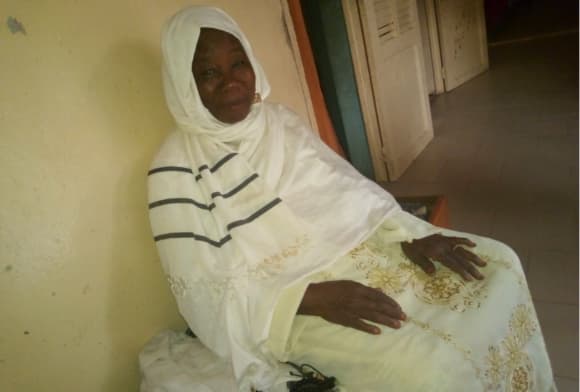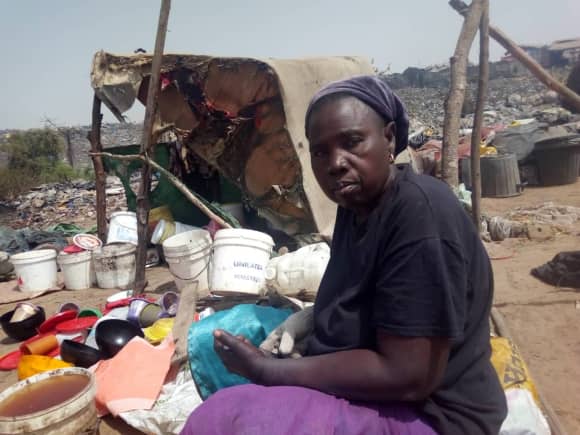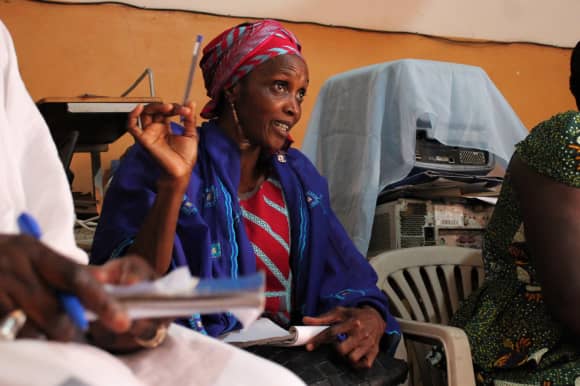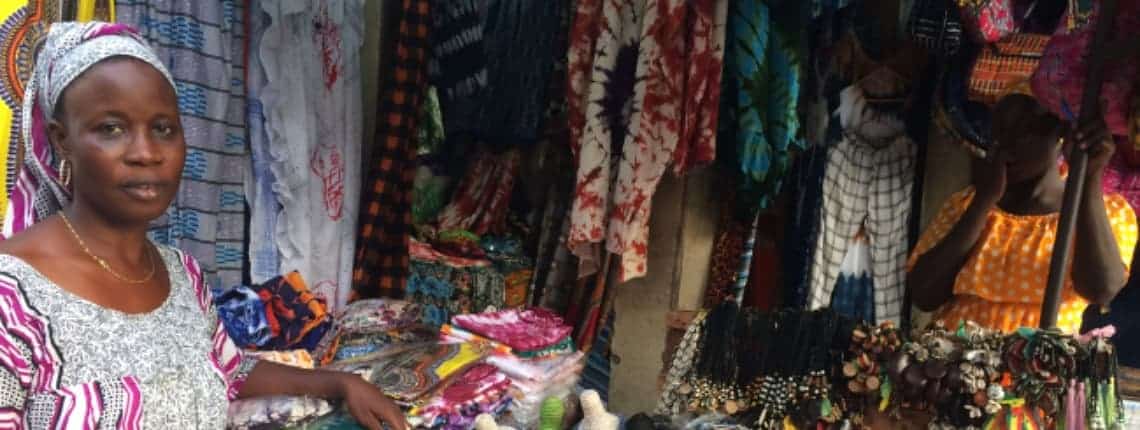In Dakar, Senegal, women continue to face economic and social inequities — from illiteracy to poverty to gender discrimination — but it’s also true that change is happening. Informal women workers have decided that they can improve their position if they join hands with other women and organize to acquire new skills and assert their leadership.
In some of the most challenging workplaces — from overflowing dump sites to cramped home workshops — women labour in near-invisibility but with a host of vulnerabilities that all too often go unseen and unaddressed. With mostly men in positions of power, the women often have few places to turn to be heard.
Membership-based organizations (MBOs) of informal workers are helping to build up the strength of individuals through connection to a common worker identity.
For these invisible women workers, solidarity is key. Membership-based organizations (MBOs) of informal workers are helping to build up the strength of individuals through connection to a common worker identity. They are addressing the challenges they face in their work and in their communities by linking up with local allied organizations, including WIEGO’s Dakar Focal Cities initiative, to gain much-needed leadership training and to strengthen their collective voice.
With these resources, women are proactively challenging the status quo to be sure their voices and demands are heard near and far.
Read more about WIEGO’s Focal Cities initiative.
Two grandmothers, two pioneering leaders
Meet Coura Ndiaye and Tenning “Ndella” Faye: two informal workers from Dakar, both in their 60s, who balance being grandmothers, mothers, friends and sisters with being workers and advocates. They are also leaders within their membership-based organizations — positions they may not have always imagined themselves in but confidently take on today.
For both women, community support, including from their families and from other women workers, has been a key underlying force in their fight for women, children and informal workers’ rights. And, as we will see, their advanced age brings the strength and wisdom that comes with experience — two assets they exemplify daily as they step out in front to better the lives of those around them.

Ndella Faye: “Training, information and commitment”
Tenning “Ndella” Faye, 63, lives on the outskirts of Dakar, and helps support her eleven children and ten grandchildren as a grain processor.
Ndella is also president of CAFEM-SD ex-AVER-B (Association des vendeueses de rue de la Banlieu or Association of Women Street Vendors on the Periphery), a women's cooperative that brings together several organizations of street vendors, domestic workers, waste pickers and women who transform local produce into marketable products (for example, turning fruits into marmalades, or processing raw grains into cereal products).
AVER-B was formed because women in Ndella’s area were struggling to improve their incomes and support their families, and they realized they would be stronger together. Members have called for help with myriad challenges, including the need for technical training to improve their production techniques, marketing skills to better promote their food products, and administrative and financial training to manage credit and earnings.
AVER-B was formed because women in Ndella’s area were struggling to improve their incomes and support their families, and they realized they would be stronger together.
As AVER-B’s coordinator, Ndella has led the charge to gain access to the much-needed resources for her fellow workers. She helped build partnerships with local organizations, including Enda Graf Sahel West Africa (a sustainable development NGO) and WIEGO’s Dakar Focal City, to develop and implement a range of trainings to to respond to expressed needs.
All of this work keeps her busy, as she runs from home to workshops to an International Women’s Day celebration. She finds balancing “lack of time with family, social and political responsibilities” challenging as she strives to “devote myself totally to my professional activities.”
But that doesn’t stop Ndella. She continues to pursue better opportunities for the women around her. She has worked with the women of AVER-B to develop innovative methods of financing, rooted in values of self-determination and solidarity. For example, with the creation of a rotating credit scheme, members are now able to access micro-loans through the organization without having to rely on banks or predatory outside lenders.
Finally, Ndella knows that economic empowerment and political empowerment must go hand in hand for women to secure their livelihoods and build their collective power from the grassroots. To this end, she has also worked with WIEGO to organize trainings on cooperative management and collective bargaining for the women of AVER-B.
Ndella knows that economic empowerment and political empowerment must go hand in hand for women to secure their livelihoods and build their collective power.
She says “prioritization of trainings” has been instrumental in her own growth and leadership. “I have greater confidence in my abilities and skills and freedom of speech, especially in public.”
Ndella’s unwavering energy to realize change for the women in her community goes beyond work. She has also taken up a role in local politics, where she serves as a municipal councilor for her district, Malika, and as the only female president of a local development committee. In this capacity, Ndella fights for the the rights of women and children in the community, especially in health and education.
Despite Ndella’s strength and experience, she has faced difficulties as a woman in such a male-dominated political environment. Officials have blocked her proposals or tried to limit her access to information, for example. In response, Ndella has fought for, and gained access to, an even greater platform to give voice to the issues facing women in her community on the national level.
Training, information and commitment are the three important levers for progress in professional, social, economic and political life.
Ndella says, “Training, information and commitment are the three important levers for progress in professional, social, economic and political life.” These are three areas she will continue to pursue for herself and for the women around her.
Read “The Truth about How Dakar’s Clothes Get Cleaned.”

Coura Ndiaye: Management skills to address women’s issues at the dump site
Coura Ndiaye, a 66-year-old widow and mother, sits on the edge of the vast wasteland where she is a waste picker at Dakar’s Mbeubeuss dump, the only landfill serving the entire city of Dakar. Surrounded daily by the 460,000 tonnes of trash that gets hauled there annually, Ndiaye gets to work. She has been working as a waste picker for more than 40 years.
Earning an income at the dump site is strenuous. Ndiaye collects, sorts, sometimes washes and then sells recyclables to buyers on site. She does this under the blazing heat for hours on end with all the health challenges and risks that come from working with waste — and she is not alone: more than 1,500 people are trying to support their families off of Mbeubeuss’ trash.
More than 1,500 people are trying to support their families off of Mbeubeuss’ trash.
For Ndiaye, she is doing this work out of necessity to be able to take care of her children now that she is on her own and a single mother, though her earnings are often low and irregular.
Despite her exhausting work and domestic responsibilities, Ndiaye spends many extra hours trying to improve the lives of women at the dump through her MBO, Bokk Diom, which means “united people with a common vision”. Ndiaye is the only woman represented in Bokk Diom’s leadership body.
The cooperative was formed in 1994 by waste pickers at Mbeubeuss, of which 60 per cent are women, to defend their rights. They currently have a community centre, which houses a clinic with a doctor, pharmacist and two nurses on site, as well as a training centre for young people who want to become waste pickers. Bokk Diom also worked with the municipality to start a school on site for children of waste pickers.
Ndiaye spends many extra hours trying to improve the lives of women at the dump through her MBO, Bokk Diom, which means “united people with a common vision”.
Ndiaye was recently elected as president of Bokk Diom’s newly formed Women’s Recycling Committee, which aims to bring visibility to the unique issues that women waste pickers face at Mbeubeuss. The committee also is working to increase women’s participation and representation within the MBO. She says support from WIEGO’s Focal City Dakar initiative to get the Women’s Committee going has brought a “new lease on life”.
For Ndiaye, gaining her important leadership position on the committee was a long time in the making. Over the years, she has been involved in various women’s groups, and learned a lot from the process of organizing Mbeubeuss’s waste pickers. Importantly, she participated in training courses provided by WIEGO, in partnership with Bokk Diom, that focused on developing leadership and business skills, legal know-how, and administration and financial management.
In one workshop on women’s rights, 12 women waste picker leaders participated in exercises and discussions to strengthen their knowledge of their rights. Among the topics addressed were the status of women in Senegal, national legal instruments that protect their rights (constitution, criminal code, family code, social security code), effective exercise of women’s rights in Senegal, and privileges of women in Senegal’s positive law (civil, political, economic and social rights). The women regularly pass on their knowledge to other members during their monthly assemblies.
Building her capacity, understanding and know-how has helped Ndiaye strategize how best to address these areas and improve work and living conditions.
Ndiaye says the trainings have improved her organizational management capacity and given her a “greater responsibility toward the reclaimers” at Mbeubeuss.
Like Ndella, Ndiaye sees her leadership position as an opportunity to address myriad women’s needs in her country, including improving access to finance and bettering incomes. Also, now that she is older, she has been increasingly focused on the social protections that informal workers need as they age. Building her capacity, understanding and know-how has helped Ndiaye strategize how best to address these areas and improve work and living conditions.
Read more about waste pickers at Mbeubeuss dump site in Dakar, Senegal.

Organizing as a tool for transformation
Ndella and Ndiaye show us how having access to the right training resources and tools can have a transformative impact on informal women workers, their organizations and the communities where they are driving change. MBOs — owned and governed by the workers themselves — are key to making this happen.
On one level, the solidarity bonds formed with other workers in the MBOs help women informal workers face many challenges together — from low earnings to difficult work conditions and even harassment.
On yet another level, MBOs are in a unique position to understand their members’ needs and to mobilize or partner with other organizations to provide trainings, through which women are able to grow individually, and, at the same time, strengthen their organization’s potential to work collectively for their rights.
Becoming leaders in their organizations helps build internal democracy, and can create spaces for fostering greater gender awareness among workers.
Becoming leaders in their organizations helps build internal democracy, and can create spaces for fostering greater gender awareness among workers, such as the Women's Recycling Committee. Women leaders advance positive change as they understand the varying forms and levels of gender inequality and what needs to be done to tackle these issues themselves.
Ndella hopes that all this leadership work pays off. She dreams of a future where women can gain equal access to education, employment and financing and be given more representation in decision-making bodies.
Only then, she says, will they be evaluated “according to their capacities and skills” and “free themselves from the logic of inferiorization.”
Feature photo: Olga Abizaid
This article is part of our month-long series for Women’s Day. Read the opening article here.
Pour lire cet article en français, cliquez ici.
